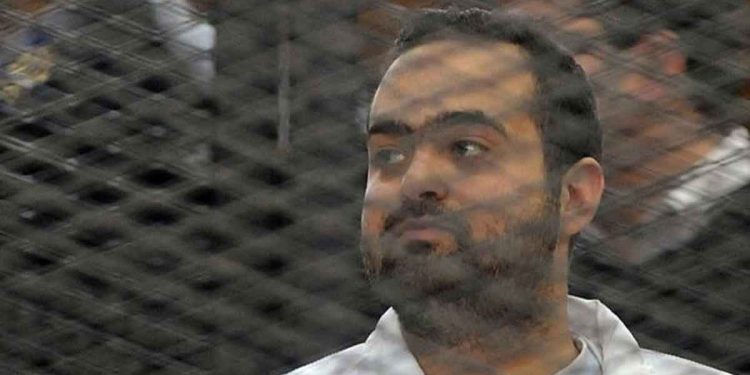In a disturbing pattern of human rights violations by the Egyptian regime and a continued crackdown on dissenting voices, a court in the city of Aja, located in the Dakahlia Governorate of Egypt, has sentenced political activist Mohammed Adel to a four-year prison term in Case Number 2981 of 2023. This case traces its origins back to 2018 and encompasses charges of “disseminating false information within and outside the country.”
The allegations of “false information” outlined in the charges revolve around criticisms of the International Monetary Fund’s (IMF) policies, Egypt’s borrowing practices, and opposition to the death penalty.
Since his arrest in June 2018, Adel has faced similar accusations in connection with three separate cases, yet he has not been brought to trial or presented with any substantial evidence against him during his nearly five years of pretrial detention, all the while enduring harsh detention conditions.
On March 4th of this year, a trial session convened, during which Adel was accused of spreading “false information” both within and outside Egypt, as well as associating with a terrorist group. The court decided to postpone the case until April 1st to allow the defense an opportunity to review the case documents. To this day, the prosecution has not permitted lawyers to access photocopies of the case files.
Adel’s initial arrest occurred on June 19th, 2018, when he was taken into custody while at a police station to fulfill his daily probation requirements linked to the “Shura Council events” case. To his surprise, he was subjected to questioning in connection with a new case.
Born on August 8th, 1988, Adel is among the founders of the April 6 Youth Movement, which played a pivotal role in advocating for a general strike in Egypt in 2008. He served as the official spokesperson for the movement during the era of the late President Hosni Mubarak.
Egyptian authorities persist in detaining thousands of individuals on political grounds, with many facing unfair trials and prolonged detention without formal legal proceedings on terrorism-related charges that lack substantiated evidence, all while enduring deplorable conditions in detention facilities.
The political trials in Egypt and the unjust sentences imposed on opposition figures raise significant concerns, necessitating the intervention of the international community and independent human rights organizations. Their efforts should include urging the Egyptian government to disclose the fates of those who have gone missing, working to prevent enforced disappearances, ensuring the delivery of justice, and revealing the truth to victims and their families.






























